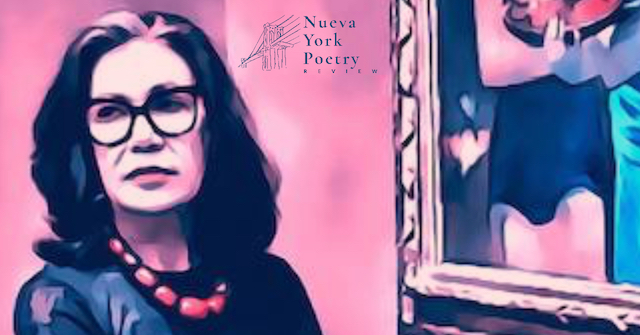
A FRANCISCO X
I
Algo presentía
ese raro día.
Esperando,
sin saber qué.
Por la mañana soleada, todo normal.
Al fin, noticia inesperada,
como un viento levantando la falda
o llevándose el sombrero.
El coraje de Ehécatl
o su éxtasis.
Seguido por los truenos
de Tláloc.
Los dioses se llevaban
al poeta de mariposas y paz.
II
Siempre seremos más de aquí que de allá,
decíamos en mejores tiempos,
cuando llevaba mi pelo suelto
y él, una sonrisa de caballero y bigote negro.
Una noche de bohemia le comenté
(mas sin pensar que con ninguna intención)
que su poesía era infantil,
hasta trivial.
Desde ahí, se hizo mi rival,
buscando
mi tropezar.
III
Al oír de la muerte
del poeta de mariposas y paz,
me puse a recordar a tantos ausentes,
los grandes y los mediocres.
La cobija de noche, la pluma incansable,
llamaban los recuerdos--
las parrandas, los vinos y cigarrillos, el mariachi
El Bar La India Bonita,
caminando por la Misión, la Calle 24.
Ya todo un sueño.
IV
Murió el poeta
de mariposas y paz.
Si no lloré,
lloraron sus amigos,
alumnos y
tantos admiradores.
Lloraron otros poetas, grandes y menores.
Lloraron los cuervos y los gorriones,
las nubes impregnadas,
hasta los cerros escurriendo blancas lágrimas.
Coyolxauhqui montada en su trono,
esperando la batalla,
también sacó un pañuelo.
Ahí está el poeta, me dije yo,
asomándome por la ventana.
Zip, zip, zip, iban sus alitas de Huitzilin.
(2016)
FOR FRANCISCO X
I
A sense of foreboding
on that strange day.
Waiting,
not knowing for what.
That sunny morning, all was normal.
At last, the unexpected news,
like a gust of wind lifting a skirt
or blowing away a hat.
Ehécatl’s fury
or his ecstasy.
Followed by the sound of thunder
from Tláloc.
The gods were carrying off
the poet of butterflies and peace.
II
We will always be more from here than from over there,
we would say in better times,
when I would wear my hair down
and he, a gentleman’s smile and a dark moustache.
One bohemian night, I made the comment
(but without thinking it was with any intention)
that his poetry was childish,
even trivial.
From then on, he became my rival,
on the lookout
for my stumbles.
III
Upon hearing of the death
of the poet of butterflies and peace,
I began to remember the many missing,
the great ones and the mediocre.
Night’s blanket, the tireless pen,
invoking memories--
the carousing, wine and cigarettes, the mariachi
Bar La India Bonita,
walking along La Misión, 24th Street.
All of it just a dream now.
IV
The poet of butterflies and peace
has died.
If I didn’t cry,
his friends did,
students and
so many admirers.
Other poets cried, greater and lesser.
The crows cried and sparrows,
impregnated clouds,
even the hills pouring white tears.
Coyolxauhqui sitting in her throne,
waiting for battle,
also pulled out a handkerchief.
There’s the poet, I told myself,
peering through the window.
Zip, zip, zip, went his majestic hummingbird wings.
(2016)
(Translation by Julieta Corpus with Ana Castillo)
Ana Castillo (1953) es una escritora, poeta, dramaturga, traductora y editora mexicoamericana (Chicana). Es considerada una de las voces mas prominentes en Chicana Experience. En 1990, se lanzó la novela Sapogonia, que se convirtió en New York Times Notable Book of the Year. Entre sus varias obras publicada estan: Otro Canto, 1977, The Invitation, 1979, So Far From God, 1993, My Daughter, My Son, the Eagle the Dove: An Aztec Chant, 200, The Guardians, 2007. Es la editora de arte y literatura para la revista, La Tolteca. Ella tiene el primer Sor Juana Inés de la Cruz Endowed Chair at DePaul University. Ha recibido varios premios incluyendo el Before Columbus Foundation’s American Book Award, y Mountains and Plains Booksellers Award.
Ana Castillo (1953) is a Mexican American (Chicana) writer and poet, playwright, translator, and editor. She is regarded as one of the prominent voices in Chicana Experience. In 1990, she released the novel Sapogonia, which became a New York Times Notable Book of the Year. Some of her works include: Otro Canto, 1977, The Invitation, 1979, So Far From God, 1993, My Daughter, My Son, the Eagle the Dove: An Aztec Chant, 200, The Guardians, 2007, among others. Is the editor of the arts and literary magazine, La Tolteca. She held the first Sor Juana Inés de la Cruz Endowed Chair at DePaul University. She has received several awards including Before Columbus Foundation’s American Book Award, and Mountains and Plains Booksellers Award.